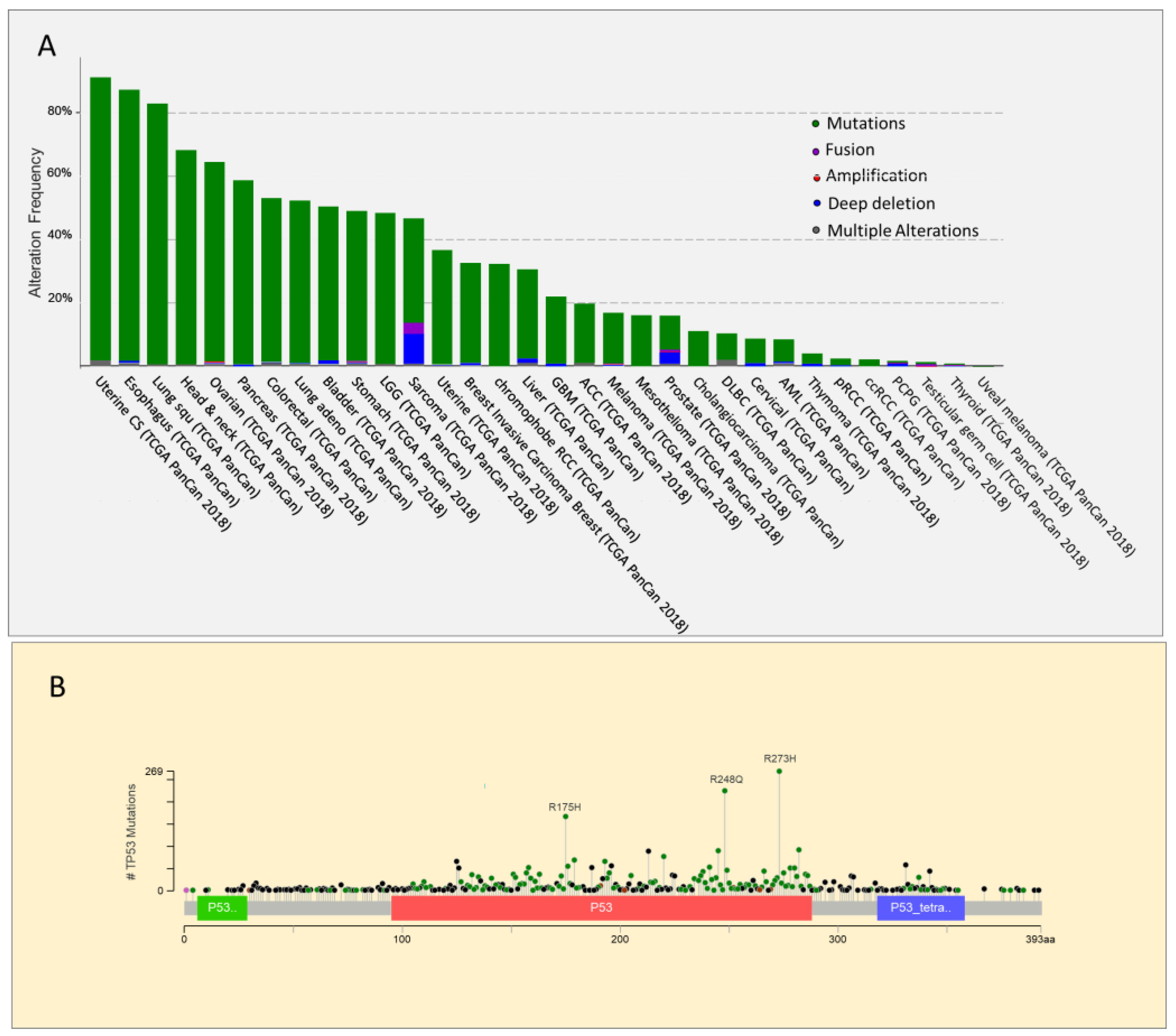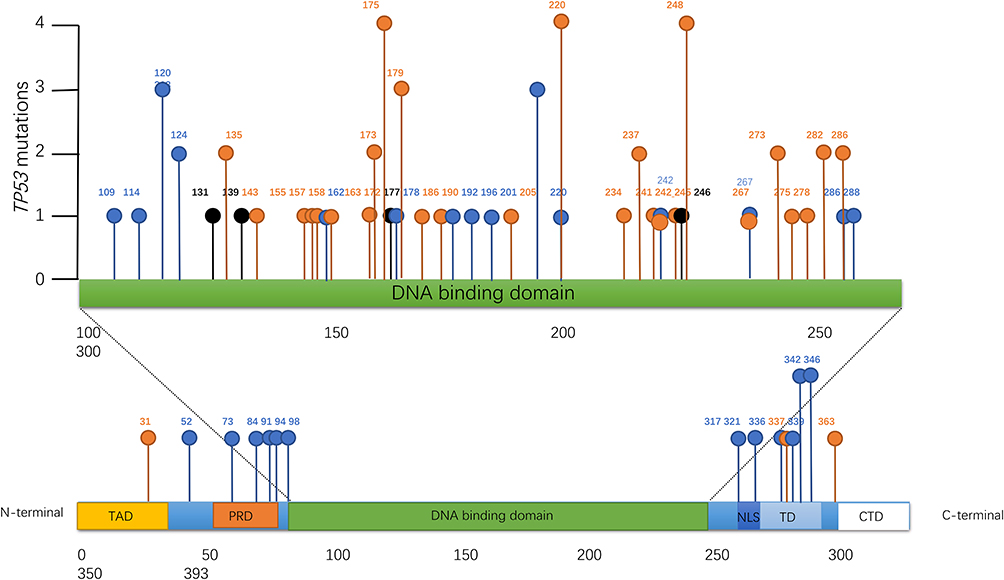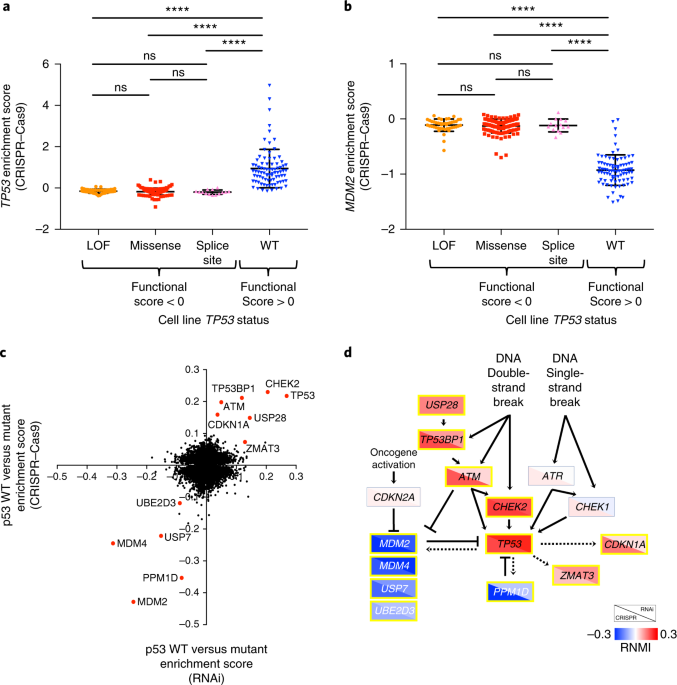
TP53 mutational landscape of metastatic head and neck cancer reveals patterns of mutation selection - eBioMedicine

Low-burden TP53 mutations in CLL: clinical impact and clonal evolution within the context of different treatment options - ScienceDirect
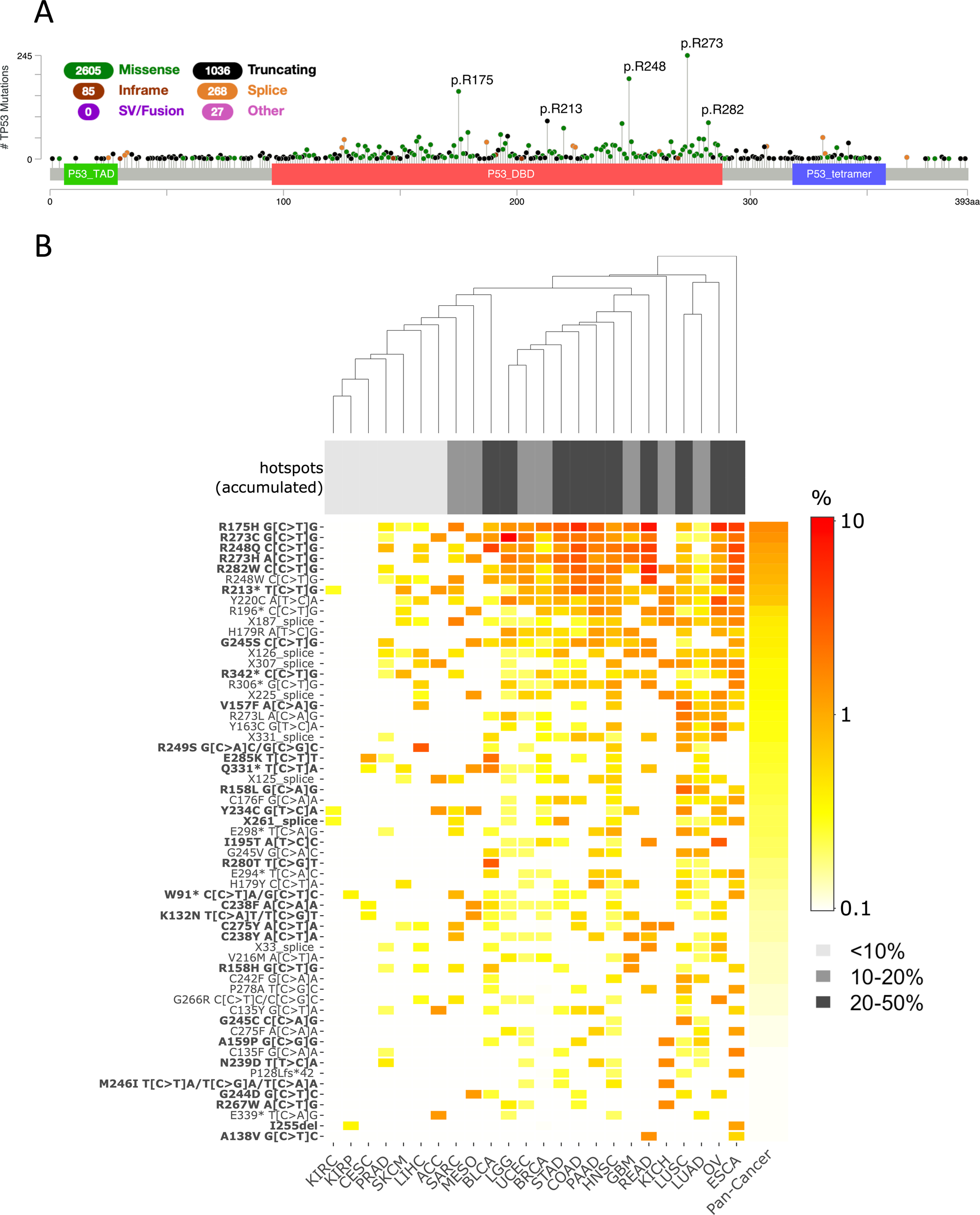
Homogenous TP53mut-associated tumor biology across mutation and cancer types revealed by transcriptome analysis | Cell Death Discovery

Probability Distributions of p53 Mutations and Their Corresponding Shannon Entropies in Different Cancer Cell Types | SpringerLink

A TP53-Associated Immune Prognostic Signature for the Prediction of Overall Survival and Therapeutic Responses in Muscle-Invasive Bladder Cancer - Frontiers

Targeting Cavity-Creating p53 Cancer Mutations with Small-Molecule Stabilizers: the Y220X Paradigm | ACS Chemical Biology

TP53 exon-6 truncating mutations produce separation of function isoforms with pro-tumorigenic functions | eLife

High prevalence of TP53 loss and whole-genome doubling in early-onset colorectal cancer | Experimental & Molecular Medicine

TP53 mutational landscape of metastatic head and neck cancer reveals patterns of mutation selection - eBioMedicine
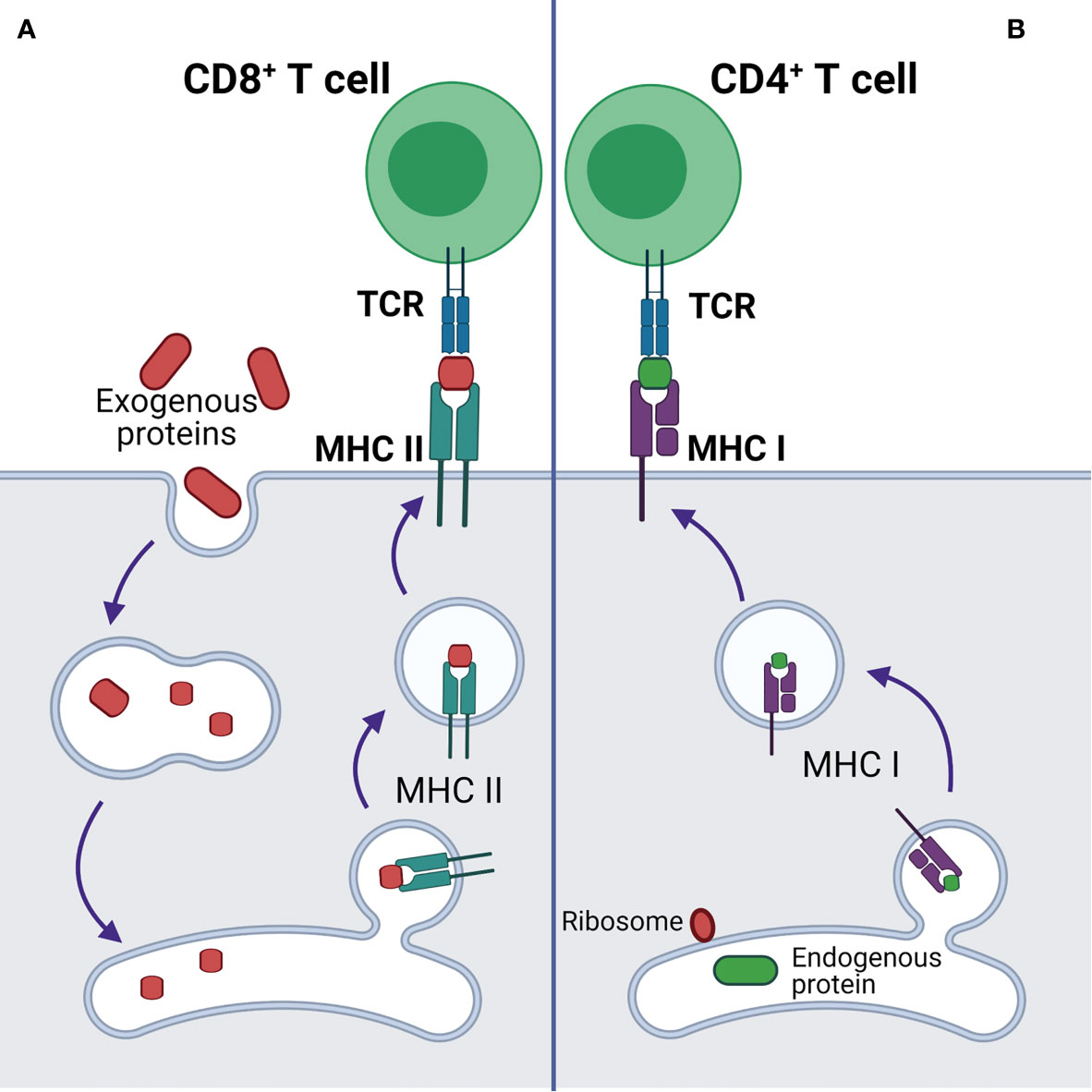
Frontiers | Promising New Tools for Targeting p53 Mutant Cancers: Humoral and Cell-Based Immunotherapies
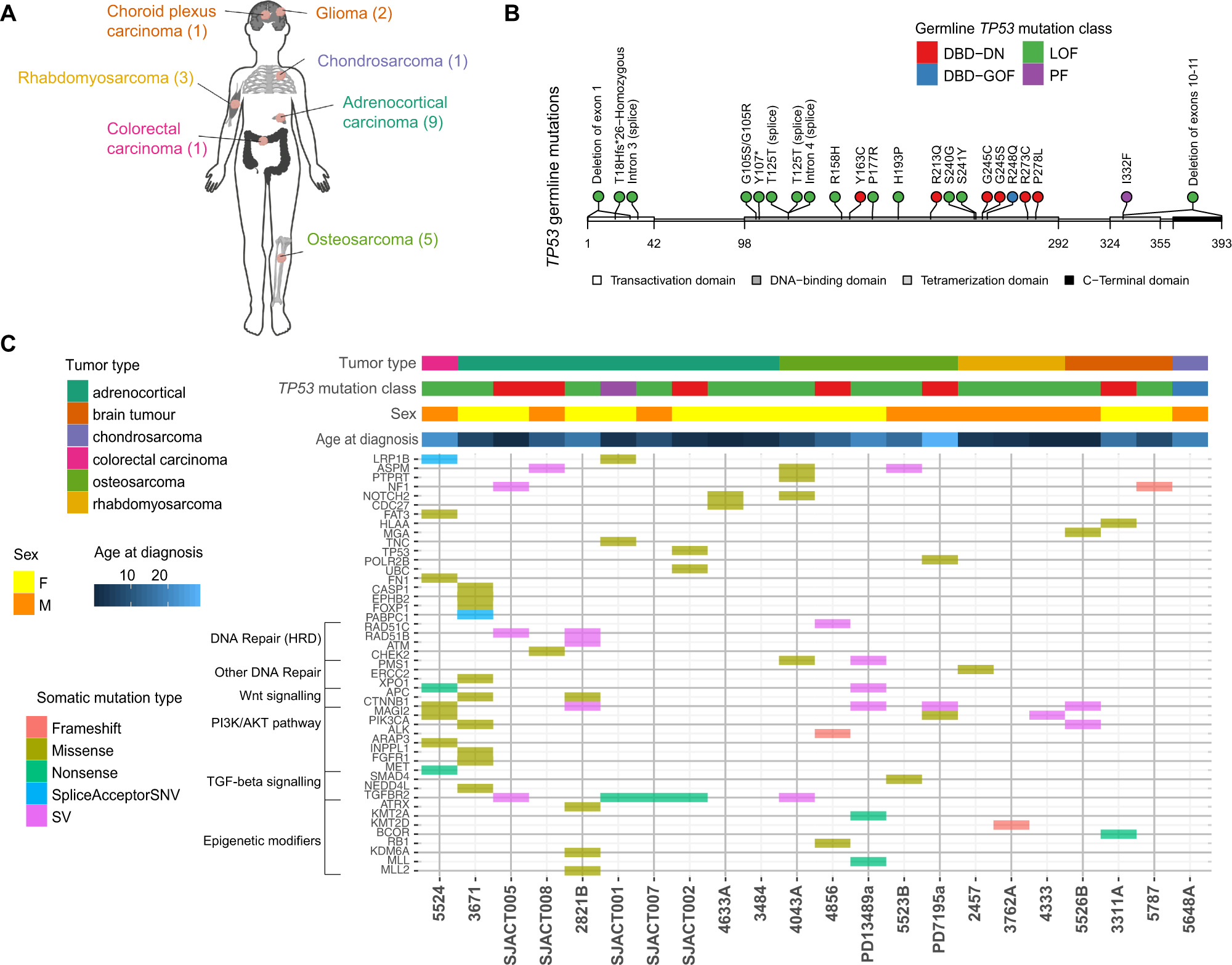
Germline TP53 mutations undergo copy number gain years prior to tumor diagnosis | Nature Communications

Gain of function in somatic TP53 mutations is associated with immune‐rich breast tumors and changes in tumor‐associated macrophages - Behring - 2019 - Molecular Genetics & Genomic Medicine - Wiley Online Library

Omics analyses of a somatic Trp53R245W/+ breast cancer model identify cooperating driver events activating PI3K/AKT/mTOR signaling | PNAS

Mutant p53 achieved Gain-of-Function by promoting tumor growth and immune escape through PHLPP2/AKT/PD-L1 pathway
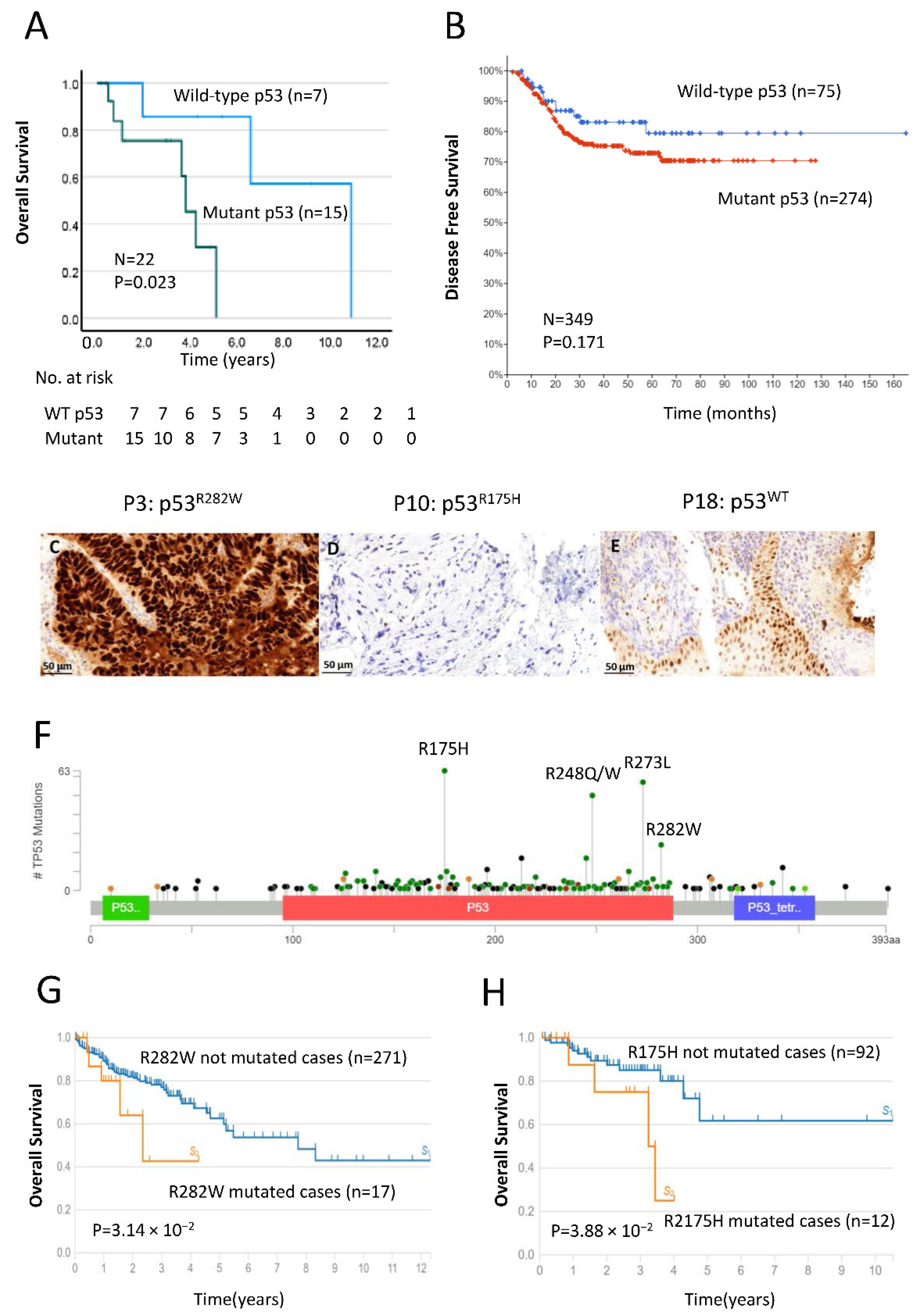
Gastrointestinal Disorders | Free Full-Text | Prognostic Impact of TP53 Mutations and Tumor Mutational Load in Colorectal Cancer
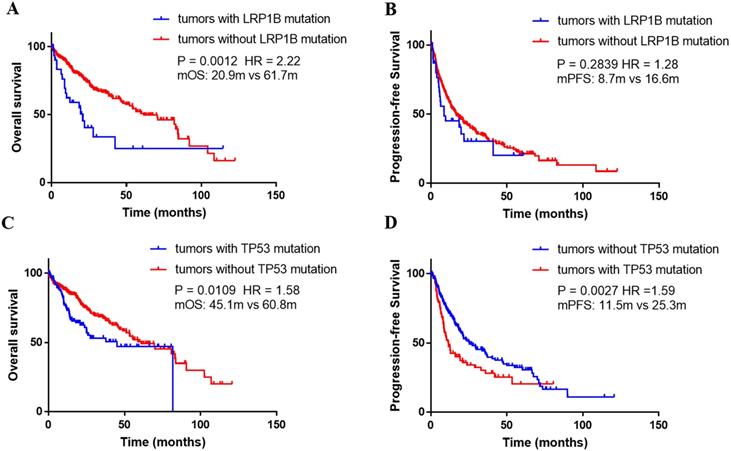
LRP1B or TP53 mutations are associated with higher tumor mutational burden and worse survival in hepatocellular carcinoma

